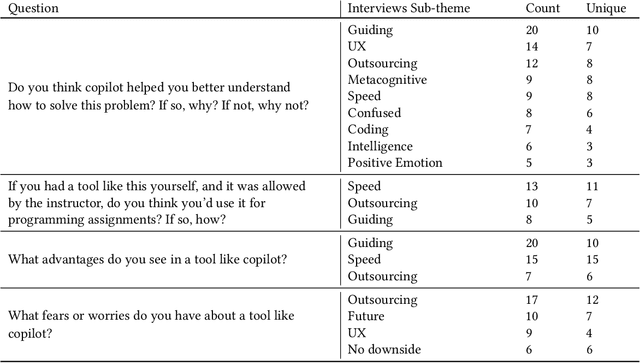"It's Weird That it Knows What I Want": Usability and Interactions with Copilot for Novice Programmers
Paper and Code
Apr 05, 2023



Recent developments in deep learning have resulted in code-generation models that produce source code from natural language and code-based prompts with high accuracy. This is likely to have profound effects in the classroom, where novices learning to code can now use free tools to automatically suggest solutions to programming exercises and assignments. However, little is currently known about how novices interact with these tools in practice. We present the first study that observes students at the introductory level using one such code auto-generating tool, Github Copilot, on a typical introductory programming (CS1) assignment. Through observations and interviews we explore student perceptions of the benefits and pitfalls of this technology for learning, present new observed interaction patterns, and discuss cognitive and metacognitive difficulties faced by students. We consider design implications of these findings, specifically in terms of how tools like Copilot can better support and scaffold the novice programming experience.
 Add to Chrome
Add to Chrome Add to Firefox
Add to Firefox Add to Edge
Add to Edge